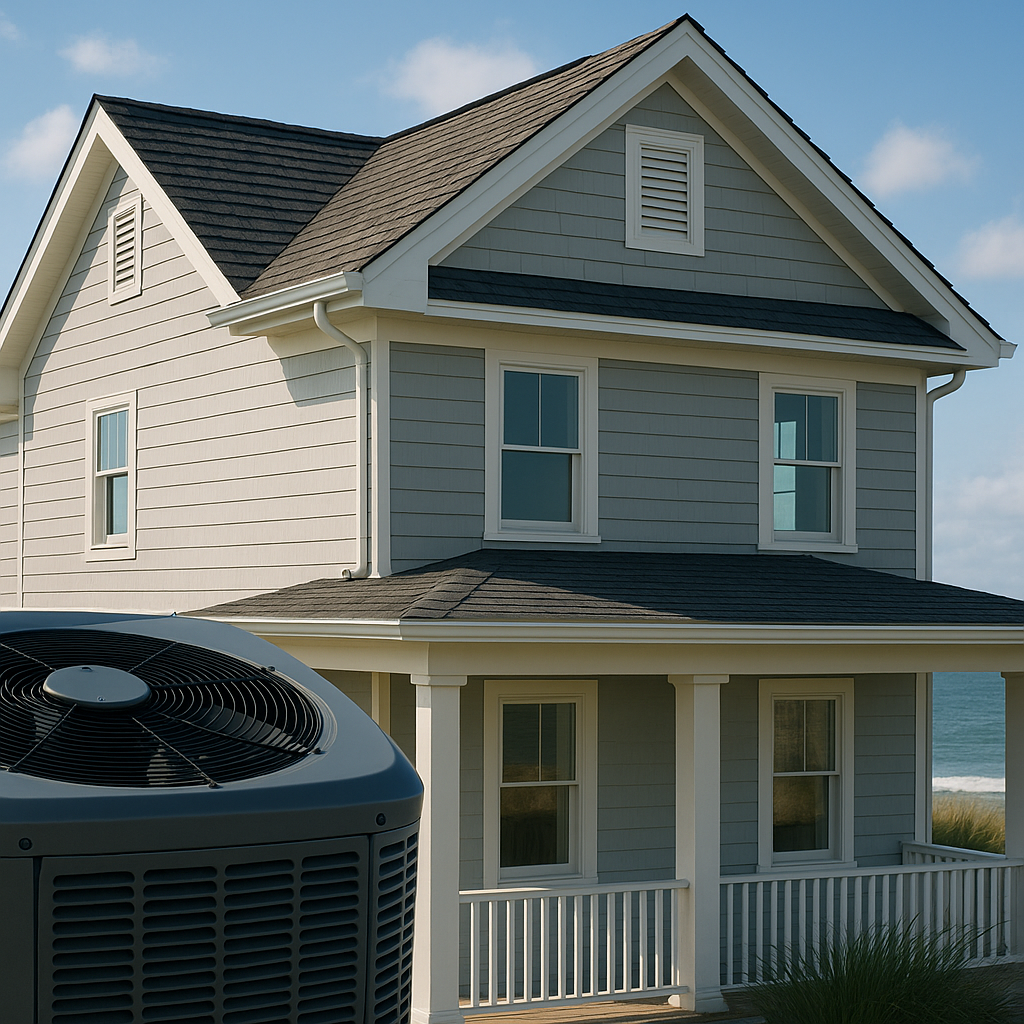Living in Myrtle Beach means enjoying sunny skies, sandy beaches, and salty ocean breezes. But while salt air feels refreshing, it can quietly cause wear and tear on your home over time.
In this guide, we’ll explain how salt air impacts your roof, HVAC system, and windows, and share simple steps to protect them so you can enjoy coastal living without costly repairs.
Why Salt Air Causes Damage
First, it’s important to understand why salt air is different from regular air. Ocean breezes carry tiny salt particles, and when they land on surfaces, they can speed up corrosion and deterioration.
Because salt is naturally abrasive and holds moisture, it can break down building materials faster — especially metal, glass, and paint.
How Salt Air Affects Your Roof
Your roof is your home’s first line of defense against the elements. However, salt air can:
- Corrode metal flashing and fasteners
- Fade or weaken shingles due to constant exposure
- Encourage mold or algae growth in humid conditions
Tip: If you have a metal roof, choose a coastal-grade finish. For shingle roofs, regular cleanings and inspections will help catch damage early.
How Salt Air Affects Your HVAC System
Next, let’s talk about your HVAC (heating, ventilation, and air conditioning) system. Outdoor units in coastal areas are especially vulnerable. Salt can:
- Rust coils and fans
- Reduce airflow if salt particles clog the system
- Shorten lifespan due to constant exposure
Tip: Schedule maintenance twice a year, and ask about anti-corrosion coatings. A simple rinse with fresh water every few weeks can also help keep salt buildup under control.
How Salt Air Affects Your Windows
Windows might seem low-maintenance, but salt air can leave behind stubborn spots and even cause damage. You might notice:
- Cloudy or etched glass over time
- Pitting or corrosion on metal frames
- Difficulty opening or closing windows due to salt buildup in tracks
Tip: Rinse windows regularly and use a mild vinegar-water solution to clean glass. For frames, choose vinyl or fiberglass instead of bare aluminum.

Steps to Protect Your Home From Salt Air Damage
While you can’t stop the ocean breeze, you can minimize its impact with regular care:
- Rinse surfaces monthly – Roof, windows, and HVAC units benefit from a quick spray with fresh water.
- Use protective coatings – Look for marine-grade paints and sealants.
- Schedule regular inspections – Catch small problems before they turn into big repairs.
- Choose coastal-rated materials – These are made to handle salt exposure
Final Thoughts
Coastal living in Myrtle Beach comes with incredible perks — but salt air is a hidden challenge every homeowner should be ready for. By understanding how it affects your roof, HVAC, and windows, and taking preventive steps, you’ll keep your home looking great and running efficiently for years to come. Maybe you don’t live in the Myrtle Beach area yet but you are planning to, schedule your call at jeremyblanton.com if you need help navigating your move to Myrtle Beach.

